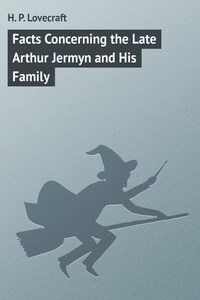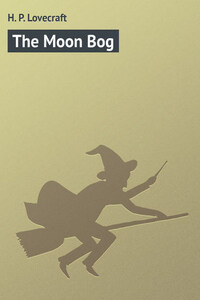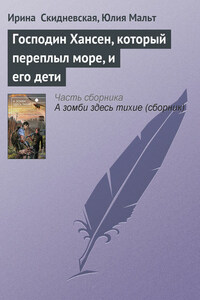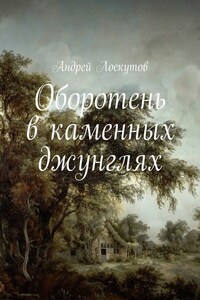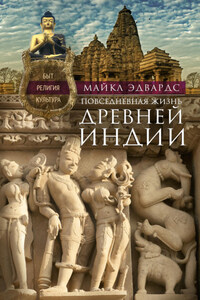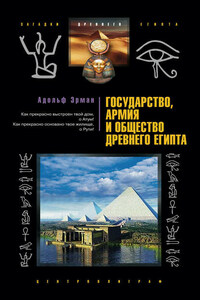Life is a hideous thing, and from the background behind what we know of it peer daemoniacal hints of truth which make it sometimes a thousandfold more hideous. Science, already oppressive with its shocking revelations, will perhaps be the ultimate exterminator of our human species – if separate species we be – for its reserve of unguessed horrors could never be borne by mortal brains if loosed upon the world. If we knew what we are, we should do as Sir Arthur Jermyn did; and Arthur Jermyn soaked himself in oil and set fire to his clothing one night. No one placed the charred fragments in an urn or set a memorial to him who had been; for certain papers and a certain boxed object were found which made men wish to forget. Some who knew him do not admit that he ever existed.
Arthur Jermyn went out on the moor and burned himself after seeing the boxed object which had come from Africa. It was this object, and not his peculiar personal appearance, which made him end his life. Many would have disliked to live if possessed of the peculiar features of Arthur Jermyn, but he had been a poet and scholar and had not minded. Learning was in his blood, for his great-grandfather, Sir Robert Jermyn, Bt., had been an anthropologist of note, whilst his great – great-great-grandfather, Sir Wade Jermyn, was one of the earliest explorers of the Congo region, and had written eruditely of its tribes, animals, and supposed antiquities. Indeed, old Sir Wade had possessed an intellectual zeal amounting almost to a mania; his bizarre conjectures on a prehistoric white Congolese civilisation earning him much ridicule when his book, Observation on the Several Parts of Africa, was published. In 1765 this fearless explorer had been placed in a madhouse at Huntingdon.
Madness was in all the Jermyns, and people were glad there were not many of them. The line put forth no branches, and Arthur was the last of it. If he had not been, one can not say what he would have done when the object came. The Jermyns never seemed to look quite right – something was amiss, though Arthur was the worst, and the old family portraits in Jermyn House showed fine faces enough before Sir Wade’s time. Certainly, the madness began with Sir Wade, whose wild stories of Africa were at once the delight and terror of his few friends. It showed in his collection of trophies and specimens, which were not such as a normal man would accumulate and preserve, and appeared strikingly in the Oriental seclusion in which he kept his wife. The latter, he had said, was the daughter of a Portuguese trader whom he had met in Africa; and did not like English ways. She, with an infant son born in Africa, had accompanied him back from the second and longest of his trips, and had gone with him on the third and last, never returning. No one had ever seen her closely, not even the servants; for her disposition had been violent and singular. During her brief stay at Jermyn House she occupied a remote wing, and was waited on by her husband alone. Sir Wade was, indeed, most peculiar in his solicitude for his family; for when he returned to Africa he would permit no one to care for his young son save a loathsome black woman from Guinea. Upon coming back, after the death of Lady Jermyn, he himself assumed complete care of the boy.
But it was the talk of Sir Wade, especially when in his cups, which chiefly led his friends to deem him mad. In a rational age like the eighteenth century it was unwise for a man of learning to talk about wild sights and strange scenes under a Congo moon; of the gigantic walls and pillars of a forgotten city, crumbling and vine-grown, and of damp, silent, stone steps leading interminably down into the darkness of abysmal treasure-vaults and inconceivable catacombs. Especially was it unwise to rave of the living things that might haunt such a place; of creatures half of the jungle and half of the impiously aged city – fabulous creatures which even a Pliny might describe with scepticism; things that might have sprung up after the great apes had overrun the dying city with the walls and the pillars, the vaults and the weird carvings. Yet after he came home for the last time Sir Wade would speak of such matters with a shudderingly uncanny zest, mostly after his third glass at the Knight’s Head; boasting of what he had found in the jungle and of how he had dwelt among terrible ruins known only to him. And finally he had spoken of the living things in such a manner that he was taken to the madhouse. He had shown little regret when shut into the barred room at Huntingdon, for his mind moved curiously. Ever since his son had commenced to grow out of infancy, he had liked his home less and less, till at last he had seemed to dread it. The Knight’s Head had been his headquarters, and when he was confined he expressed some vague gratitude as if for protection. Three years later he died.
Wade Jermyn’s son Philip was a highly peculiar person. Despite a strong physical resemblance to his father, his appearance and conduct were in many particulars so coarse that he was universally shunned. Though he did not inherit the madness which was feared by some, he was densely stupid and given to brief periods of uncontrollable violence. In frame he was small, but intensely powerful, and was of incredible agility. Twelve years after succeeding to his title he married the daughter of his gamekeeper, a person said to be of gypsy extraction, but before his son was born joined the navy as a common sailor, completing the general disgust which his habits and misalliance had begun. After the close of the American war he was heard of as sailor on a merchantman in the African trade, having a kind of reputation for feats of strength and climbing, but finally disappearing one night as his ship lay off the Congo coast.
Конец ознакомительного фрагмента. Полный текст доступен на www.litres.ru
